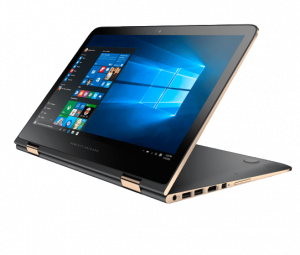The Need for Speed: Boosting Your Tortoise-like Computer
- gadgetlot
- August 10, 2023
- 12:23 pm
- No Comments
Recent Posts
Newsletter
Tags
The Need for Speed: Boosting Your Tortoise-like Computer
We’ve all been there. You’re sitting at your computer, drumming your fingers on the desk, eyeing the monitor screen. Slow performance is a common computer problem that many people face. Whether it’s a sluggish startup, delayed response times, or even freezing, these issues can be incredibly frustrating.
But fear not, dear reader! it’s just an everyday reality for many people dealing with slow computers. In this blog post, I’ll guide you through some simple steps to troubleshoot and solve this issue. Let us turn that digital tortoise into a stallion.
Why is My Computer Slow?
Before we dive into solutions, it’s important to understand why your computer might be slow. There are several reasons:
Too many programs running at once: Having multiple applications or browser tabs open can eat up your computer’s memory (RAM), causing it to slow down.
- Hard drive is nearly full: If your hard drive is over 90% full, you may experience a significant slowdown in your computer’s performance.
2. Malware or virus: Malicious software can consume your system’s resources, slowing it down.
Outdated software or drivers: Not updating your software or drivers can cause compatibility issues and slow down your system.
How to Speed Up Your Computer!!
Here are some solutions to improve your computer’s performance:
- Close Unnecessary Applications and Browser Tabs
The more programs and browser tabs you have open, the more memory your computer uses. Try to keep only the necessary applications and tabs open. You can check which programs are consuming the most resources by opening Task Manager on Windows (Ctrl + Shift + Esc) or Activity Monitor on Mac (Applications > Utilities > Activity Monitor).
- Clean Up Your Hard Drive
If your hard drive is almost full, it’s time for a cleanup. Uninstall unnecessary software, delete duplicate files, and clear your recycle bin or trash. Consider using cloud storage or an external hard drive for your less frequently accessed files.
- Run a Malware Scan
Use a reliable antivirus program to scan your computer for malware. If any suspicious files are found, the software will quarantine or delete them. Remember to update your antivirus software regularly for the best protection.
- Update Your Software and Drivers
Outdated software and drivers can cause your computer to slow down. Regular updates not only improve performance but also fix bugs and enhance security. Check for updates in your system settings and remember to restart your computer after installing updates.
- Upgrade Your Hardware
If you’ve tried all the above solutions and your computer is still slow, it might be time for a hardware upgrade. Adding more RAM or switching to a Solid State Drive (SSD) can significantly boost your computer’s speed.
Remember, regular maintenance is key to keeping your computer running smoothly. By following these tips, you should see an improvement in your computer’s performance. However, if you’re still experiencing issues, it is best to seek our help.
At Gadgetlot, we have the tools, experience, expertise and knowledge to diagnose the problem accurately and suggest the best course of action. Call or chat +2348124105409 to secure your computers and take your project to new heights!
Our reach extends beyond Lagos with a notable presence in Abeokuta, Abuja and other parts of Nigeria and U.A.E, demonstrating our commitment to providing quality technology solutions to people and institutions across the country.
In conclusion, a slow computer doesn’t mean the end of the world. With a little patience and troubleshooting, you can get your system back to its speedy self. Good luck!



Recent Comments